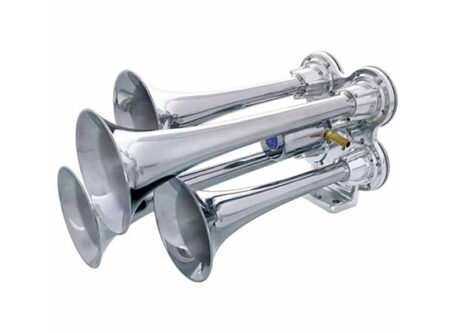Wisconsin lawmakers approve changes to truck insurance bill
Wisconsin state lawmakers have made quick work of commonsense truck insurance reform that is touted to counter “nuclear verdicts.” Two more midwestern states also have legislation to address the issue.
The Senate voted 21-11 on Tuesday, Feb. 20, to advance to the Assembly a bill that would limit the total amount of noneconomic damages, such as pain and suffering, that a person may recover from a trucking company. A $1 million cap on noneconomic damages would apply to incidents with a truck that result in injury, death or other loss.
SB613 does not include limits on direct damages, such as medical expenses.
Acting the same day, Assembly lawmakers backed sending the truck insurance bill to Gov. Tony Evers.
Nuclear verdicts
Nuclear verdicts recently were described to an Assembly committee as when the jury award surpasses what should be a reasonable or rational amount. Rep. Rick Gundrum, R-Slinger, told lawmakers some people consider a jury award that exceeds $10 million to be in the category.
“This has become a rising problem in the transportation industry,” Gundrum said.
Gundrum, the truck insurance bill’s Assembly sponsor, told the panel about a study by the American Transportation Research Institute that showed the average verdict size for a lawsuit above $1 million involving a truck crash has increased nearly 1,000%.
He noted that while a plaintiff hurt in an accident with a truck certainly has the right to file a lawsuit, “the problem with the rise in nuclear verdicts is that they are now seriously beginning to damage the trucking industry.”
Supporters add that nuclear verdicts worsen supply chain issues and lead trucking businesses to pay higher insurance rates, redirect their resources away from investing in their workforce and prolong the purchase of new equipment.
In written testimony, Sen. Cory Tomczyk, R-Mosinee, told the committee the commercial trucking industry has seen an increase in large-scale litigation.
Tomczyk highlighted a July 2023 report from the U.S. Chamber of Commerce Institute for Legal Reform that showed despite a decline in fatal crashes by more than one-third over the past two decades, “there has been a significant inflation in the valuation of verdicts and settlements, with the average settlement award reaching $27.5 million.”
He said his truck insurance bill addresses a rising problem by placing a reasonable cap on noneconomic damages.
Truckers weigh in
The Wisconsin Motor Carriers Association and the Owner-Operator Independent Drivers Association support the reform legislation.
Speaking at the recent hearing, WMCA President Neal Kedzie told lawmakers noneconomic damages are intended to be compensatory and not punitive. He added that plaintiffs’ attorneys choose noneconomic damages to circumvent limitations on when and how much punitive damages may be imposed.
He also noted the truck insurance legislation is about setting reasonable limits to curb the growing abuse of noneconomic damages.
“Wisconsin’s trucking industry is essential to everyone in our state, and rampant lawsuit abuse is impeding our ability to do our job safely and efficiently,” Kedzie said in prepared remarks. “We urge Gov. Evers to sign this bill into law.”
OOIDA has issued a Call to Action encouraging Wisconsin members to contact the governor and ask that SB613 be signed into law. LL









